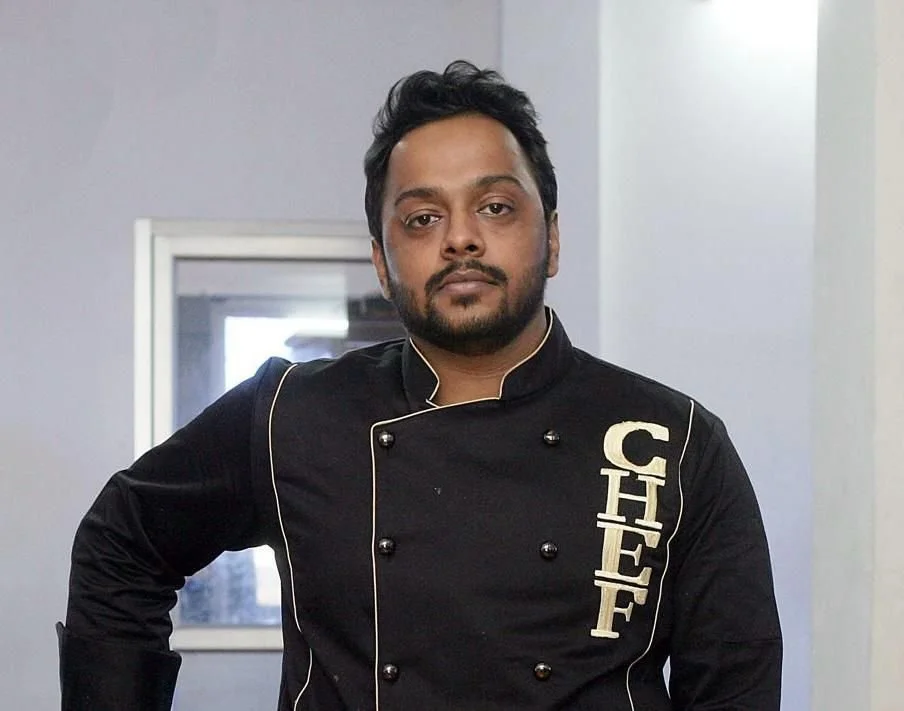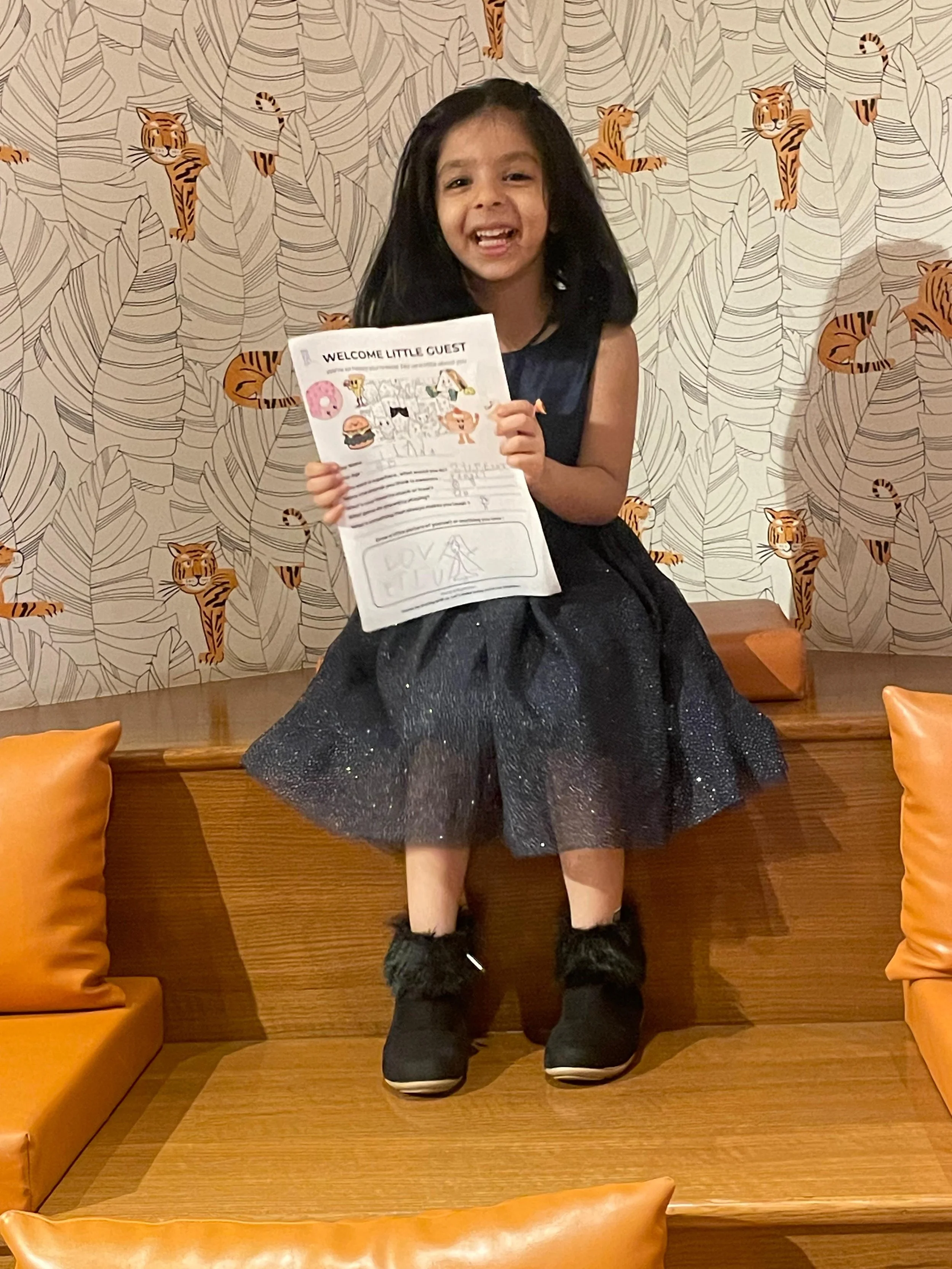Exclusive Interview | Vedant Newatia, Founder and Chef, Atelier V
/“The only advice I can give to young chefs is that – Be humble, put your head down and work you’re a** off. When given chance to work with the best, TAKE IT! Don’t involve your personal ego when you deal with people who are way more experienced than you. Ask questions, steal recipes, don’t say no to difficult task, be ready to clean floor and dishes but make the most of the opportunity given to you.”
Can you share your journey from Indore to becoming an internationally trained chef, and what inspired you to pursue a career in culinary arts?
Growing up in Indore, India, the vibrant food culture and the rich culinary traditions always fascinated me. From a young age, I was intrigued by the bustling local markets, and the diverse street food scene of Indore with dishes like poha, jalebi, garadu, dahi chaat, etc. After finishing school, I decided to formalize my passion for cooking and enrolled in a renowned culinary school in India which was IHM-A (Institute of Hotel Management – Aurangabad).
After completing the first year I decided I want to train in Europe and decided to move my higher education in Switzerland. There I did both my BA in Culinary Arts and MSc in Events and Hospitality Management. It was during these times where I honed my skills, learning not just Indian cuisine but also gaining exposure to international culinary techniques and cuisines. Eager to expand my horizons, I applied for an internship at a prestigious restaurant in Europe, South American and USA. This opportunity was a turning point in my career. Working under the guidance of world-class chefs like Dominique Ansel, Rodolfo Guzman, Glenn Viel, I learned the intricacies of French, Italian, and modern European cuisines. The experience was both challenging and rewarding, pushing me to refine my skills and develop a deeper understanding of global culinary practices.
How did your education at the Institute of Hotel Management, Aurangabad, and the Business and Hotel Management School in Switzerland shape your approach to cooking and hospitality?
At IHM-A, students receive a solid foundation in culinary arts. The curriculum covers various aspects of cooking, including Indian and international cuisines, baking and pastry arts, and food safety and hygiene. This comprehensive education ensures that students are well-versed in fundamental cooking techniques and have a deep understanding of Flavors and ingredients. IHM-A places a strong emphasis on practical training. Students spend a significant amount of time in the kitchen, honing their skills through hands-on experience.
This practical approach helps them develop the confidence and expertise needed to excel in a professional kitchen environment. Being in India, IHM-A also provides students with an in-depth knowledge of Indian culinary traditions. This exposure to regional cuisines, spices, and cooking techniques fosters a deep appreciation for India’s rich culinary heritage.
What were some of the most valuable lessons you learned from your experiences working in Switzerland, Chile, France, the USA, and Amsterdam?
Every country’s experience taught me different things. There were somethings common like meeting new people, experiencing a new culture and tradition, trying local food and drinks, travelling, etc. But every experience in a different country taught me something special: Switzerland taught me attention to detail, operational efficiency and working with the best of the best ingredients; Chile taught me on using local resources, the concept of foraging ingredients and being sustainable; France which is the birthplace of gastronomy, it taught me discipline, consistency and hard work; USA taught me customer-centric approach and embracing diversity. Amsterdam, Netherlands was where I learnt bartending and that was a time where I learnt a completely new skillset.
Who are the chefs and mentors that have had the most significant impact on your culinary career, and what did you learn from them?
In my first internship in Zurich at Au Premier restaurant there was a Dutch chef who was a CDP by the name of Samuel Colsey Jerie, he was the first person who believed in me and allowed me to do a lot of things in the kitchen, he always took the time to show me stuff, teach me new techniques and involve me in kitchen operations which were not allowed to interns. Secondly, it was Manuel Zaugg in Steinhalle in Bern, Switzerland who was the Sous chef there. He taught me a lot of techniques in cooking along with the art of precision and efficient working. He also entrusted me to take over a whole station.
What is your vision for Atelier V, and how do you plan to integrate your international culinary experiences into the menu and dining experience?
At Atelier V, our vision is to create an unparalleled dining experience that transcends borders, blending the rich culinary traditions of Indore with innovative international techniques. We aim to be a beacon of culinary and cocktail excellence, offering a menu that reflects the diverse Flavors and cultures encountered throughout my international journey.
I want Atelier V to be a haven for young budding chefs who cannot travel or go to big cities, I want Atelier V to be the industry leading restaurant/bar in Tier-II cities in India, I want to see a huge amount of women enrolment in our team. My ultimate goal is to get Indore on the world food map along with cities like Paris, Tokyo, Mumbai, New York, etc.
What have been some of the biggest challenges in establishing Atelier V in Indore, and what have been the most rewarding aspects of this journey?
Bureaucracy, corruption, compliances and laid-back attitude of the city has been a big challenge. At the same time dealing with all of this has been the most rewarding as this teaches you about the ground reality of how difficult it is setting up a business in India.
Can you describe your culinary philosophy and how it is reflected in the dishes served at Atelier V?
My culinary philosophy is ‘excellent food, great drinks and great service with a twist but without compromising on your roots’. The dishes served at Atelier V are comforting and new to a city like Indore, but the dishes are not unfamiliar in the culinary world. I want to educate people on the existence of such kind of food. Currently, my focus is to break the barrier of people of Indore and access to only North Indian and Asian food.
How do you balance innovation with tradition in your cooking, especially when introducing global flavours to local diners?
Balancing tradition is difficult when certain cooking techniques and ingredients are involved but the best way to maintain this is by using as many local ingredients as possible and trying to find local solutions to international problems.
What role does sustainability play in your restaurant, and how do you incorporate sustainable practices in your kitchen?
For us sustainability is not just a practice, its part of the operations. It is very important for us that nothing goes to waste. I always say, whatever can go in the stomach should never go in the dustbin. To ensure this we follow certain steps:
Trying to order correct amount of ingredients
Using every part of the fruits, vegetables, meat, dairy and seafood
Using leftovers for team lunch and team dinner
Buying from local market as much as possible
Finding vendors near to the restaurant to reduce the distance of vehicles used for delivery
Recycling every PET or plastic product
What advice would you give to aspiring chefs who wish to gain international experience and bring it back to their home countries?
The only advice I can give to young chefs is that – Be humble, put your head down and work you’re a** off. When given chance to work with the best, TAKE IT! Don’t involve your personal ego when you deal with people who are way more experienced than you. Ask questions, steal recipes, don’t say no to difficult task, be ready to clean floor and dishes but make the most of the opportunity given to you.









